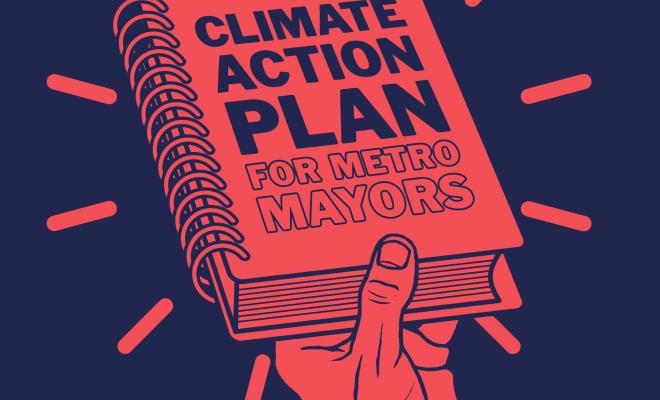21 Aug 2025
What can the next Mayor do for people and planet?
We're facing a climate and ecological emergency – the biggest threat we’ve ever seen to humanity’s existence. Whoever is elected as the next Mayor of the West Midlands can’t single-handedly solve the crisis, but they must use the powers they have to make as big a difference as possible. They have a very important role to play in providing a guiding vision for the area, and will need to work with councils, businesses, local communities and the national government.
The West Midlands Combined Authority (WMCA) has had a Climate Action Plan in place since September 2021 and seeks to be net zero by 2041. Its first Five Year Plan will run until 2026. Some progress has been made, as acknowledged by Climate Emergency UK’s Council Climate Action Scorecards, which assessed all UK councils on the actions they've taken towards net zero. However, action needs to be accelerated in several areas such as retrofitting buildings, transport, developing renewable energy within the region and saving energy. This Climate Action Plan will help the next Mayor do this using the devolved powers and funding granted to them.
How green is the West Midlands?
10 priorities for the next Mayor
- Ensure all plans, programmes and investment decisions are in line with what’s needed to address the climate and ecological emergency and are aligned with international, national, regional and local carbon reduction targets.
- Ensure that the voices of those most impacted by climate breakdown and nature loss are heard and given centre-stage in decision making.
- Support new green jobs. Protect workers and communities through a just transition to a low-carbon, nature-rich, circular economy, including linking skills training to low-carbon jobs.
- Ensure new housing is zero carbon and served by sustainable transport using their strategic planning powers and influence on constituent local planning authorities. Use brownfield regeneration and affordable housing funding to deliver zero-carbon homes in locations accessible by public transport and active travel.
- Take a leading role in bringing existing homes in the area up to high energy efficiency standards to reduce emissions and put an end to fuel poverty. Ensure that existing homes are protected from extreme weather events.
- Set targets to at least double public transport use, cycling and walking within the next 10 years by improving infrastructure and the affordability, connectivity and reliability of services, including franchising the bus network. Set out a plan to achieve interim World Health Organization (WHO) air quality standards by 2030, and make the West Midlands safer for vulnerable road users and responsible drivers.
- Accelerate the development and implementation of a Local Area Energy Plan (LAEP) with a clear focus on increasing the supply of clean, renewable energy, including supporting community energy initiatives and the roll-out of heat pumps.
- Produce a Local Nature Recovery Strategy (LNRS) for the area that increases tree cover, eliminates green space deprivation to tackle health inequalities, helps the area become more resilient to the impacts of climate change, and protects and enhances nature. This includes contributing to the national aim of protecting 30% of land for nature by 2030.
- Lead the development of a circular economy strategy for the region with local businesses and local authorities to cut waste and resource consumption, reduce reliance on incineration and landfill, and boost the green economy.
- Stop all work on HS2 immediately and review how the project could deliver much more for the West Midlands if it were to go ahead. This would include better integration of new and existing infrastructure, as well as services that are compliant with the WMCA’s climate emergency declarations and defend nature in line with the LNRS. If the project proceeds, ensure there’s much more inclusive governance at the WMCA level.


